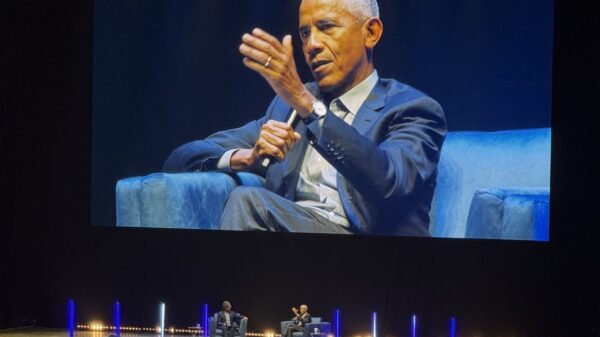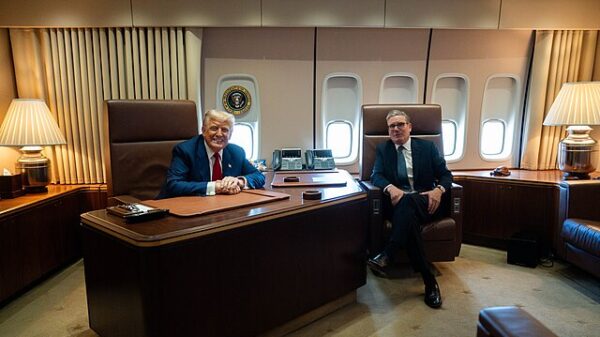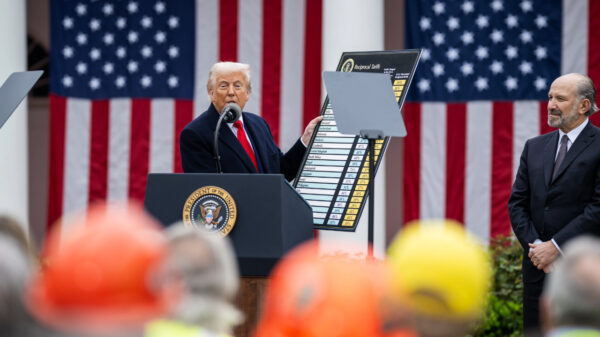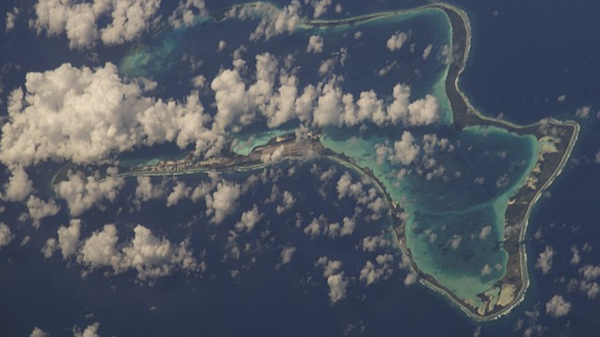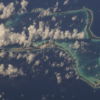Staff Writer Anna Julia Cantoni unpicks the optics and outcome of United States President Donald Trump and European Comission President Ursula von de Leyen’s meeting in Turnberry.
‘The best deals are made on the golf course’…or are they? Nothing says transatlantic cooperation quite like the European Commission President Ursula von der Leyen agreeing tariff terms on United States President Donald Trump’s luxury golf course.
On 27 July 2025, Von der Leyen flew, at Trump’s invitation, to his Turnberry golf resort in Scotland. An interesting choice, given most European Union (EU) deals are done in Brussels, in government buildings.
Trump had threatened tariffs as high as 30% for EU goods with the looming deadline of August 1st, effectively pointing an economic gun to Europe’s head. EU officials were already drafting retaliatory tariffs up to €93 billion, and businesses were sweating.
Soon after his arrival to Scotland, Trump talked about there being a mere 50-50 chance of reaching an agreement, claiming Brussels wanted to “make a deal very badly”. But in what Von der Leyen called a “huge deal” after “tough negotiations”, the two agreed on a 15% import tariff on the “vast majority” of EU goods, “including cars, semiconductors and pharmaceuticals”. A “zero for zero” exception was also made imposing zero tariffs to a range of sectors including “certain chemicals,… certain agricultural products, natural resources, critical raw materials”, and “all aircraft and component parts”.
Naturally, before Trump’s second term, there were no tariffs on EU goods. And although Von der Leyen helped halve the threatened 30% tariff, the rate is still a problem, and not the worst of it. The real damage lies in the EU agreeing to pay for the “privilege” of maintaining access to the US market: a promise to buy $750 billion in American energy over three years and funnel another $600 billion into U.S. investments. These staggering sums will inevitably divert funds away from European development and innovation, whilst also legitimising bilateral coercion, undermining the multilateral, rules-based system championed by the World Trade Organization.

Von der Leyen’s decision to agree on a high-stakes deal at Turnberry is humiliating. The EU’s image of a norm-driven, high-minded bloc just got a hole-in-one reality check on Trump’s home turf. Europe has long aspired to a normative power ambition—to influence via rules, diplomacy, and democratic values—but this visit signals the opposite. Though it is understandable that, due to the U.S. government’s continuous surprises, the EU wants to nail down economic certainty, the choice of venue is questionable and inevitably raises questions as to Europe’s integrity.
Back in Trump’s first term, EU leaders made a sport of condemning his ‘America First’ antics. French President Emmanuel Macron gave speeches warning against an “authoritarian drift.” Former German Chancellor Angela Merkel stressed “Europe must take [its] fate into [its] own hands.” Brussels even launched initiatives like the European Defence Fund to reduce dependency on the U.S..
And now? The Commission President literally agreed to tariff terms in a building where the doormats have his initials. ‘Strategic autonomy’ looks less like independence, and more like upgraded customer loyalty. The strategy needs revising. The EU has long sought to define itself as more than just a market, but its President jetting off to a luxury resort at Trump’s beck and call paints the picture of a bloc that still can’t decide if it’s a geopolitical player or not.
To EU citizens, this moment may feel like a betrayal of the bloc’s founding values in pursuit of short-term economic calm. To Americans, it’s a validation of Trump’s transactional worldview—diplomacy reduced to business deals. And to the world, it confirms a shifting balance of power. If the EU can be pressured into such concessions, what’s to stop future leaders, authoritarian or not, from using market leverage as a weapon? Economic coercion is increasingly the language of power, and Europe is struggling to assert itself in this new world. Whether Von der Leyen’s gamble reflects pragmatic diplomacy or fear-driven concession, it is clear: the EU no longer sets the rules—it reacts to them.
In a post-Biden era, unpredictability is the new norm. Europe finds itself negotiating not just under pressure, but on its opponent’s terms, literally and symbolically. We used to say we wouldn’t be bullied by American strongmen. Now we’re caddies on their turf.
For more in-depth analysis on the Trump Administration, click here.







